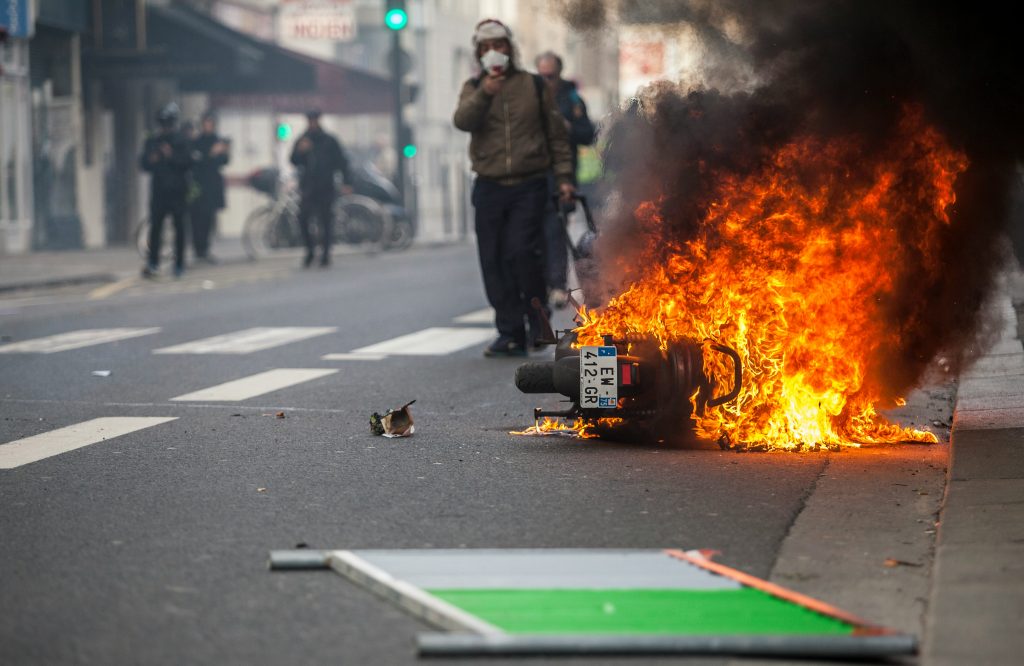Madagascar Protests Intensify as Police Fire Rubber Bullets on Youth Demonstrators
3 min read
Tensions escalate in Madagascar as security forces clash with youth protesters rejecting presidential promises.
Tensions rise in Antananarivo as Gen Z Mada rejects President Andry Rajoelina’s promises and vows to continue nationwide strikes.
Security forces in Madagascar opened fire with rubber bullets and deployed tear gas to disperse a large youth-led demonstration on Thursday, as anger mounts against President Andry Rajoelina. At least 1,000 protesters took to the streets of Antananarivo, demanding the president’s immediate resignation after two weeks of intensifying anti-government protests.
Youth Movement Rejects Dialogue
The protest movement, known as Gen Z Mada, has consistently rejected the president’s calls for dialogue. Earlier this week, Rajoelina invited representatives to attend talks at the presidential palace, but the group refused, accusing the government of repression and ignoring their basic human rights demands. “We cannot negotiate with those who oppress us,” the group declared in a statement.
Security Forces Crack Down
According to AFP reports, security forces used armored vehicles to charge at demonstrators, leading to multiple arrests. Some protesters hurled objects at police in response to the heavy-handed tactics. The confrontations are the latest in a series of escalating street battles that have left dozens injured and heightened fears of further unrest.
Power and Economic Crisis Ignite Anger
The current wave of protests began on September 25, sparked by public frustration over chronic power and water shortages. The movement has since grown to encompass wider grievances, including corruption, unemployment, and rising living costs. For many young Malagasy citizens, the situation has become unbearable, fueling calls for political change.
Presidential Pledge Under Fire
In a town-hall meeting on Wednesday, Rajoelina promised to resign within a year if his administration fails to end the country’s crippling power cuts. “I swear that if power cuts persist in the capital within a year, I will resign,” he told attendees. He pledged to add 265 megawatts to the national grid through ongoing energy projects. But for the protesters, these promises came too late. Gen Z Mada issued a 48-hour ultimatum for the president to step down a deadline that has since expired.
“The People Deserve the Truth”

During the meeting, Rajoelina also criticized those around him for painting a rosy picture of the situation. “I don’t want flattery. I want to hear the truth,” he said. “It’s the people who kept telling me that everything was fine who are responsible for our current situation.” He has pledged to “listen more,” but protesters argue that such gestures cannot replace meaningful action.
Nationwide Strike and Continued Resistance
On Thursday, Gen Z Mada announced a nationwide strike, urging citizens across the country to join their movement. “The Malagasy people do not submit,” the group declared. Although demonstrations have lost some intensity in recent days, organizers say they are committed to pushing until the president resigns or meaningful reforms are achieved.
Omega Tv UK celebrates ONE YEAR ANNIVERSARY, we wish to thank all our viewers for helping us reach this milestone.
Happy 1st anniversary to Omega TV UK!.
Government Reshuffle Fails to Calm Unrest
Earlier this week, Rajoelina dismissed his entire government and appointed an army general as prime minister. However, protesters swiftly rejected the move, calling it a cosmetic change rather than a genuine reform. They have vowed to continue demonstrations and strikes in the coming days.
Historical Context of Power Struggles
Rajoelina’s current political troubles echo the way he came to power in 2009, when he led mass demonstrations that resulted in the military overthrowing then-President Marc Ravalomanana. His critics argue that he is now facing the same kind of popular anger he once helped mobilize against his predecessor.
Heavy Police Presence and Rising Death Toll
Although daily life in most parts of Antananarivo continues relatively normally, several neighborhoods remain under tight security. Roads have been blocked or closely monitored by police. According to United Nations figures, at least 22 people have died and dozens have been injured in clashes with security forces since the protests began. Authorities have disputed these numbers, further fueling tensions.






